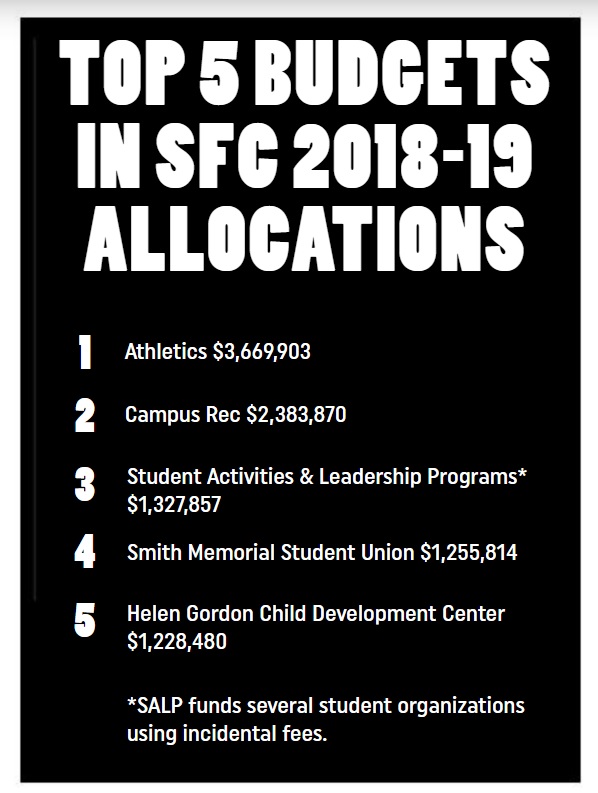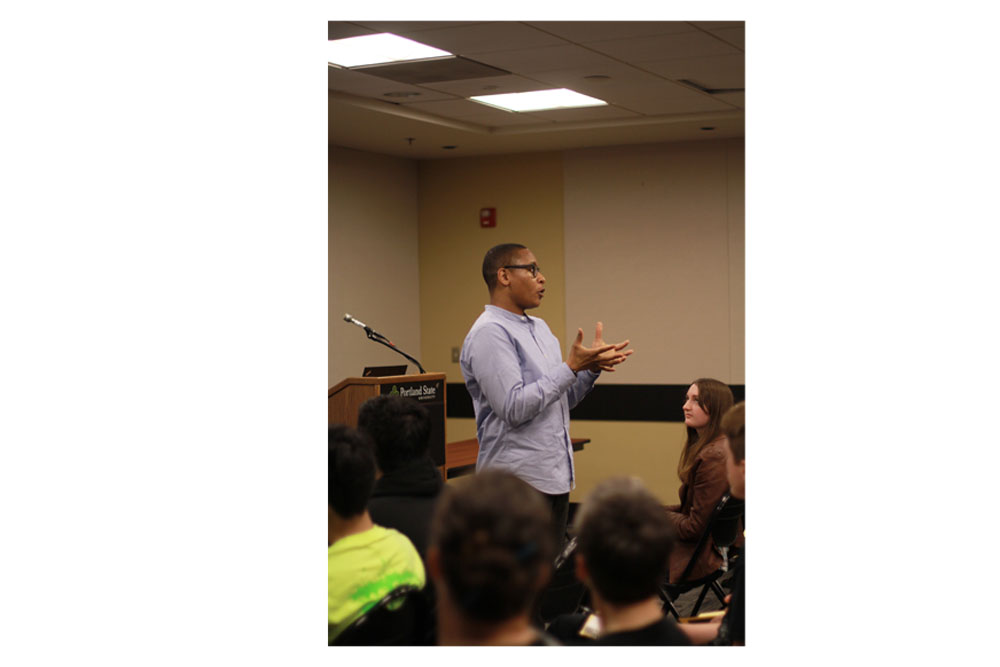In commemoration of the 50th anniversary of the Stonewall Inn Riots, the Pan African commons and the Queer Resource Centers of both Portland State and Portland Community College held performances May 31 in the Smith Memorial Student Union.
The event featured a drag show by MC Miss Poison Waters and her friends, Nay Nay Leaks Cartier, T Kara Campbell Starr, Lexxus Lynn Phoenixx and Kourtney Capri Duv who are all local queer performers of color.
“I think it’s so important that we are holding space to let people of color lead the dialogue,” said Angel Ramirez, who works for the multicultural center at PCC. “I feel a lot of the time, especially here in Portland, we like to think that we’re a progressive state—but it’s drowning out our communities of color and not really speaking about the things we face on a day to day.”
Stonewall riots
The 1969 riots at the Stonewall Inn inspired the formation of the Gay Liberation Front. Every June, cities all around the world hold pride parades near the anniversary of the riots.
“[The Stonewall riots] galvanized trans and queer activists organizations and movements here and around the world, the stonewall riots are why we celebrate pride each June,” said Miss Poison Waters.
On June 28, New York City police raided the Stonewall Inn—a gay club in Greenwich Village—sparking a riot as the police arrested 13 people and attempted to force employees and customers out of the club.
“When [the police] came to get us out of there, nobody moved,” said Miss Major Griffin Gracy in a video as she recounted the events leading up to the Stonewall riots. “All [of a] sudden, everybody was fighting.”
The riots continued for approximately five days, spilling into the streets and involved hundreds of people. According to The Atlantic, fire hoses were turned on protesters, windows were smashed, barricades were created and parking meters were uprooted.
Erasure
Some feel that the origins and organizers behind the riots have been forgotten.
“I’ve seen some of the movies they’ve made about Stonewall, where they’ve cast white actresses to play a trans black woman, and that’s a kind of erasure we can’t stand for,” said Stephanie Diaz, a community member visiting from Pennsylvania.
The 2015 film Stonewall received criticism for its primarily white cast and lack of gender variance.
“Many trans and queer Black and Latinx people argue that the dominant white queer community rewrote and continues to control the narrative of Stonewall,” Miss Poison Waters said. “They say this is one of the reasons for the gulf between whites and themselves as a united front against homophobia and transphobia.”
“I think that at this point in our history we’re starting to realize that we’ve told the story of Stonewall wrong for so long,” Diaz said. “[We] actually started to recognize the people who were really involved with it, so I think that this is a really interesting time for young LGBTQ+ people and older LGBTQ+ people to get together and actually start to learn our history.”
People of Stonewall
Poison Waters also took time to commemorate some of the major figures of the Stonewall riots.
“Miss Major Griffin-Gracy, a veteran of the infamous stonewall riots, former sex worker and survivor of Attica State Prison transgender elder…has fought for over 40 years to create visibility and equity for trans women of color,” Poison Waters said.
Sylvia Rivera was a transgender activists for gay liberation before the organization of the gay rights movement. In 1970, Sylvia Rivera and Marsha P. Johnson founded the organization Street Transvestite Action Revolutionaries, an activist group for trans queer youth of color without homes. Johnson is credited with throwing the first brick during the Stonewall riots.
Miss Poison Waters said of Sylvia Rivera, “One time when a New York City council was debating a gay rights bill behind closed doors, Rivera was arrested for trying to climb into a dress in high heels.”
New York city announced last week that both Rivera and Johnson will be featured in a new monument placed near the Stonewall Inn.
During the performances, attendees would shower the performers with cash, as is customary during a drag show, and the tips were donated to Portland Friends of Lesbian and Gays (PFLAG), Black chapter.
PFLAG promotes the health and well-being of black, gay, bisexual, transgender and queer LGBTQ+ people.
Red Hamilton, a student volunteer, said “this organization began as the first African-American chapter of PFLAG in the nation,” and helps through “support, education, organization and advocacy.”






